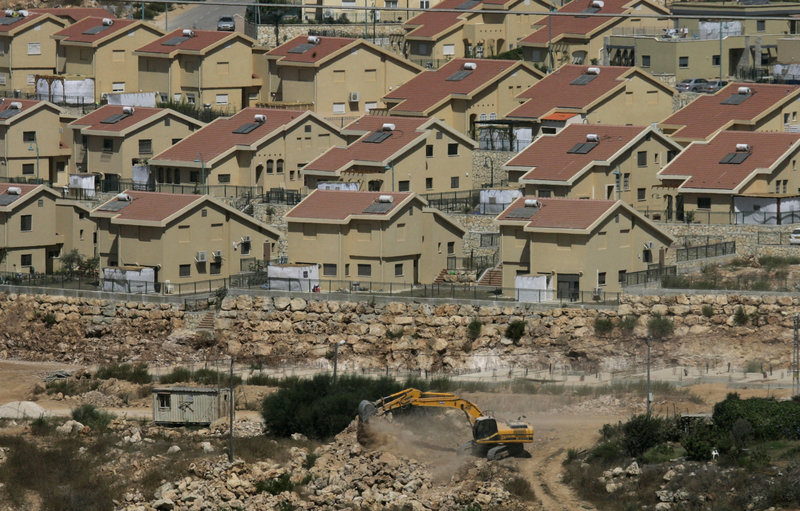JERUSALEM – The Israeli government has quietly agreed to grant subsidies to build more than 500 new homes in the West Bank, backtracking from a promise earlier this year to deny these incentives to the settlements.
The planned construction, at a time when Prime Minister Benjamin Netanyahu is trying to shore up support among settlers, has enraged the Palestinians and could cloud a visit by Secretary of State Hillary Clinton that was due to start Sunday as she tries to re-energize Mideast peace efforts.
The housing units are benefiting from the government’s designation of the settlements as “national priority” areas — a status normally reserved for low-income cities and towns where the government wants to encourage development and lure people to live.
In January, the Israeli Cabinet identified more than 550 communities, including 70 West Bank settlements, as national priority areas. The list drew immediate protests from the Palestinians, who view the West Bank as the core of a future state. The United States demanded an explanation of the settlements’ inclusion.
Facing international pressure, Israeli leaders held a second vote in a meeting conducted by telephone to exclude the settlements from the measure. Shortly after, Netanyahu told a news conference that the initial Cabinet decision was a mistake.
Government spokesman Mark Regev at the time insisted the new vote meant that the subsidy program “does not apply to communities in the West Bank.” Still, the Cabinet left a loophole, saying settlements could receive benefits “contingent on a decision by political leaders.”
According to Israel’s Housing Ministry, however, the country’s political leaders have already approved subsidies for 24 homes in the settlement of Efrat, just south of Jerusalem.
And nearly 500 other homes in Efrat and two other settlements, Beitar Illit and Ariel, are now in the pipeline to receive the incentives, which include a discount of up to $27,000 for infrastructure development costs.
Ministry spokesman Ariel Rosenberg said it’s unclear how many of these homes will be built because the construction bids for the 500 homes have not closed. He also noted that subsidies are also available for projects in hundreds of other communities inside Israel proper.
Asked about the apparent flip-flop, Regev said, “There are no special incentives whatsoever to encourage people to live in the West Bank. The same conditions apply to 600 communities throughout the country.”
But neither the Palestinians nor the international community see things that way.
Israeli settlements in the West Bank and east Jerusalem are at the heart of a three-year-old deadlock in Mideast peace efforts. The Palestinians claim both areas, captured by Israel in 1967, for a future state.
But with more than 500,000 Jewish settlers now living in these areas, the Palestinians say their dream of an independent state is fading as it grows tougher to partition the land between Israelis and Palestinians.
The international community, including the United States, says the settlements are illegal or illegitimate.
Copy the Story Link
Send questions/comments to the editors.



Success. Please wait for the page to reload. If the page does not reload within 5 seconds, please refresh the page.
Enter your email and password to access comments.
Hi, to comment on stories you must . This profile is in addition to your subscription and website login.
Already have a commenting profile? .
Invalid username/password.
Please check your email to confirm and complete your registration.
Only subscribers are eligible to post comments. Please subscribe or login first for digital access. Here’s why.
Use the form below to reset your password. When you've submitted your account email, we will send an email with a reset code.